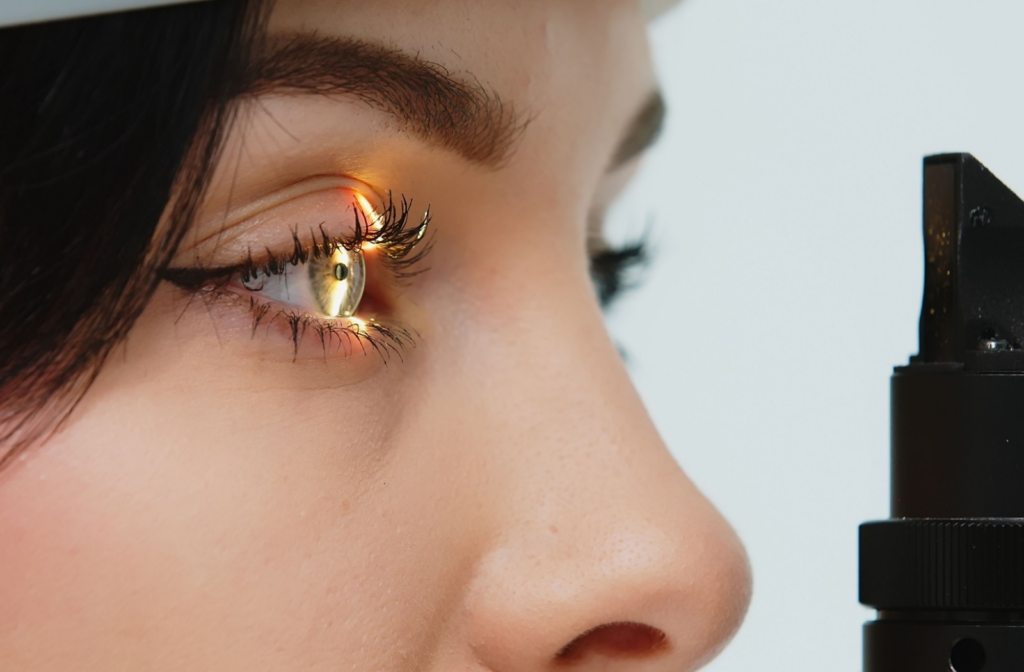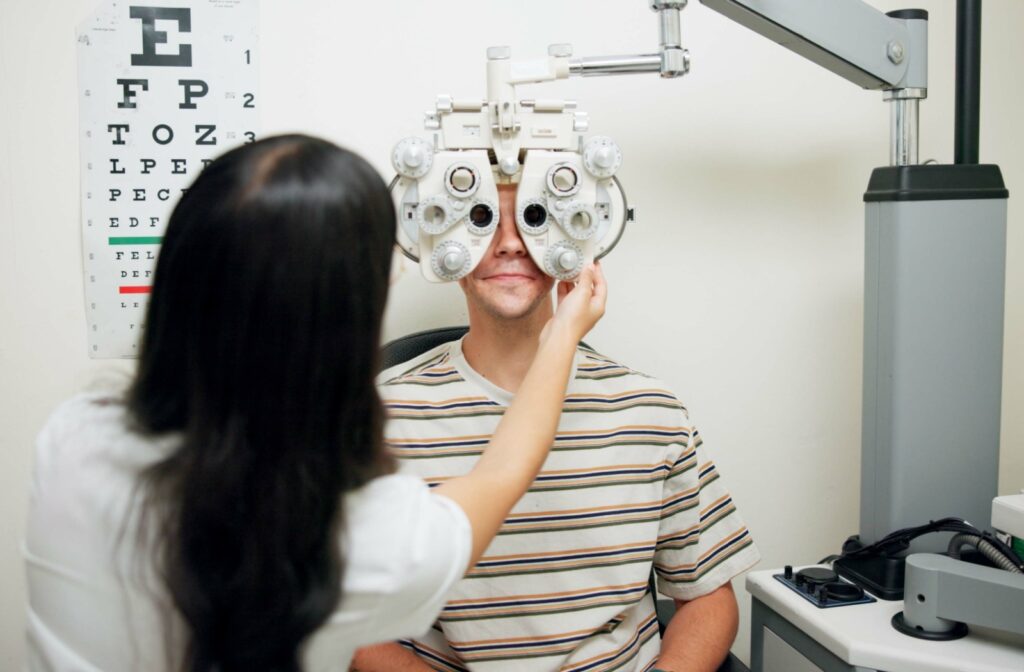A detailed eye exam does more than check your vision; it can reveal early signs of serious health conditions throughout your body. Think of it as an important part of your family’s preventive healthcare, which includes knowing how often you should get an eye exam based on your age and health profile.
A thorough eye examination is one of the most important things you can do to protect your health because it can help detect a wide range of diseases. From eye-specific conditions like glaucoma to systemic issues like diabetes and high blood pressure, what we see inside your eye tells a larger story. At Northern Lights Optometry, our approach to eye disease diagnosis and management allows us to find issues, often before you notice any symptoms.
More Than Just a Vision Test: The Comprehensive Eye Exam
A simple sight test that only checks for a glasses prescription is not the same as a comprehensive eye exam. A thorough exam with an optometrist provides a complete picture of your eye health. At our practice, we use modern diagnostic tools to examine, diagnose, and help manage conditions before they affect your sight.
What We Check During Your Exam
During a comprehensive exam, we look at your entire visual system. This gives us a full picture of your eye health and general wellness.
- Visual acuity and refraction tests
- Eye muscle coordination and movement
- Neurological assessment of the visual system
- Evaluation of the health of the front and back of your eye
- Eye pressure measurement for glaucoma
Detect Common Eye Conditions Early
Many eye diseases develop slowly without obvious symptoms until your vision is already affected. Regular exams are one of the best ways to catch these conditions early, when they are most manageable.
Nearsightedness and Farsightedness
Nearsightedness and farsightedness are common vision problems caused by the shape of your eye. These conditions can make it difficult to see clearly at different distances. We can determine an accurate prescription customized to your visual needs for clear, comfortable sight.
Glaucoma
Glaucoma is a condition that damages the optic nerve, which connects your eye to your brain. It often has no symptoms until significant, irreversible vision loss has occurred. Early detection through regular eye pressure checks and optic nerve scans is key to preserving your vision.
Cataracts and Macular Degeneration
Cataracts—a clouding of the lens inside your eye—are a common part of aging that can make your vision blurry. Macular degeneration affects your central vision, making it hard to read or recognize faces. Innovative imaging helps us monitor these conditions and recommend the right steps for maintaining your eye health.
Your Eyes as a Window to Your Overall Health

The blood vessels and nerves in your eyes can show the first signs of health problems in other parts of your body. Because the eye is the only place where we can directly see the blood vessels without any surgery, an eye exam can be the first place these issues are spotted. This makes your eye doctor an important part of your health care team.
High Blood Pressure and Heart Disease
Bends, kinks, or bleeding from blood vessels in the back of your eye can be signs of high blood pressure. Examining the retina can also reveal microscopic marks that may point to changes in your cardiovascular system. Addressing these findings early can help you manage your overall health.
Diabetes
Leaking blood vessels in the retina—a condition called diabetic retinopathy—can be detected in an eye exam. Sometimes, we can see these changes even before a person has been diagnosed with diabetes. For those who have diabetes, regular exams are vital for preventing vision loss.
Autoimmune and Inflammatory Conditions
Conditions like rheumatoid arthritis, lupus, and multiple sclerosis can cause issues throughout the body, including the eyes. They can lead to inflammation and dryness. Often, eye-related symptoms like painful red eyes or optic nerve inflammation can be an early sign of a systemic condition.
What Are Some Urgent Eye Symptoms?
While many conditions develop slowly, some symptoms require prompt attention. It’s important to recognize the signs of a serious eye emergency that requires immediate care. Let your optometrist know right away if you experience any of the following:
- Sudden loss of vision in one or both eyes
- Flashes of light or a sudden increase in floaters
- A shadow or “curtain” over your field of vision
- Severe, sudden eye pain
- Recent double vision
Why Regular Eye Exams Matter for Yukon Families
From a child’s first check-up to monitoring age-related changes, regular eye exams are a vital part of your family’s healthcare routine. As a community-minded practice with deep roots in Whitehorse, we are dedicated to providing thorough, multi-generational eye care. We take the time to get to know you and your family’s specific needs.
We believe modern technology helps enable early detection and accurate diagnosis for all areas of eye care. Booking an exam is a simple step to protect not just your vision, but your overall well-being.
At Northern Lights Optometry, we are committed to helping you and your family enjoy a lifetime of healthy eyes. Our team is here to provide comfortable, informative, and personalized service for all your vision needs. Contact us today to schedule your comprehensive eye exam.





